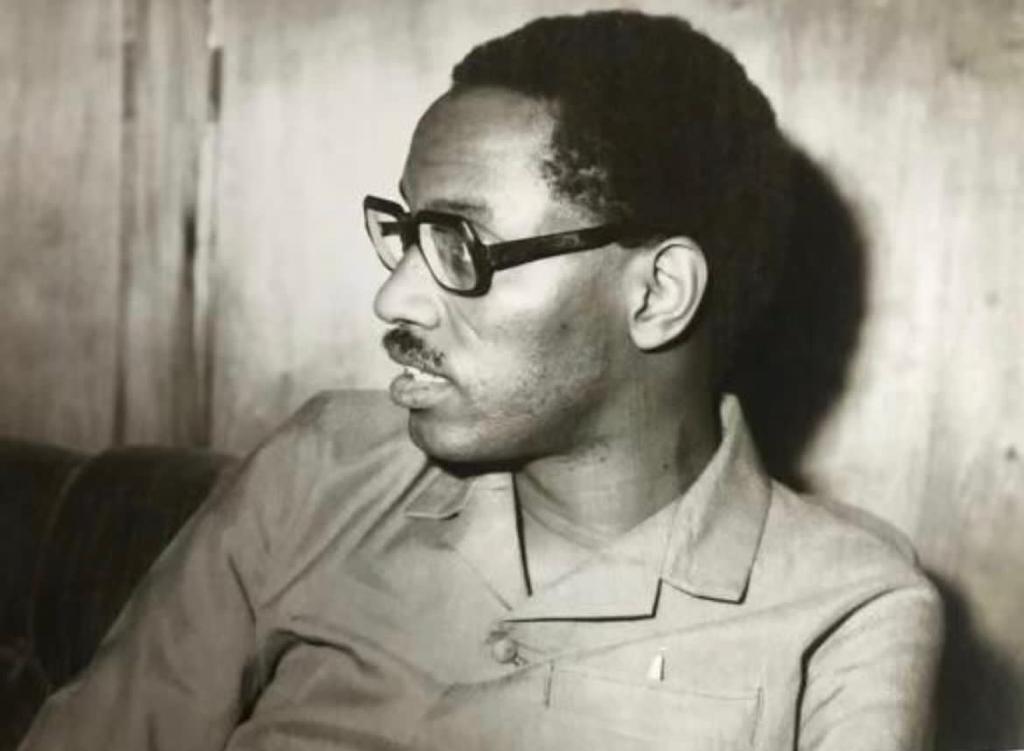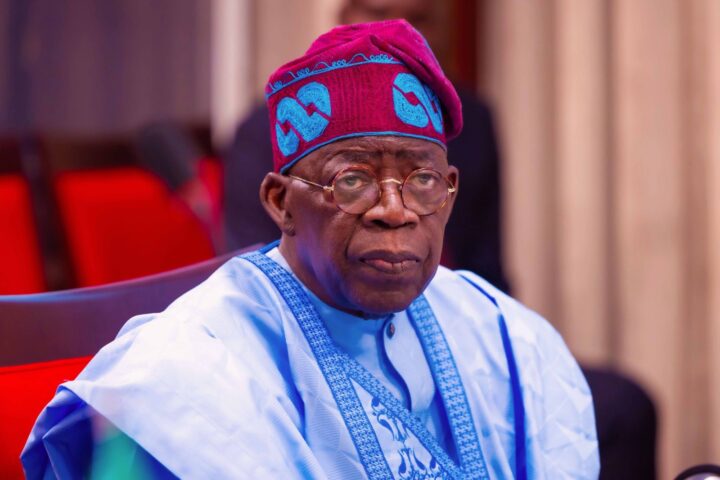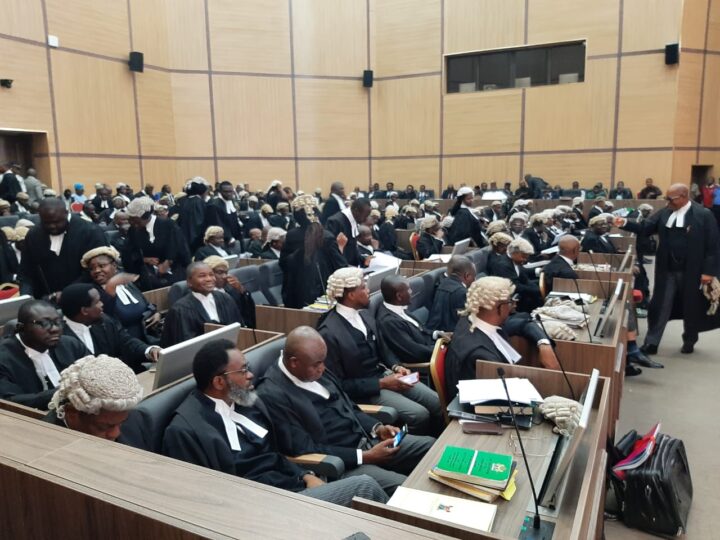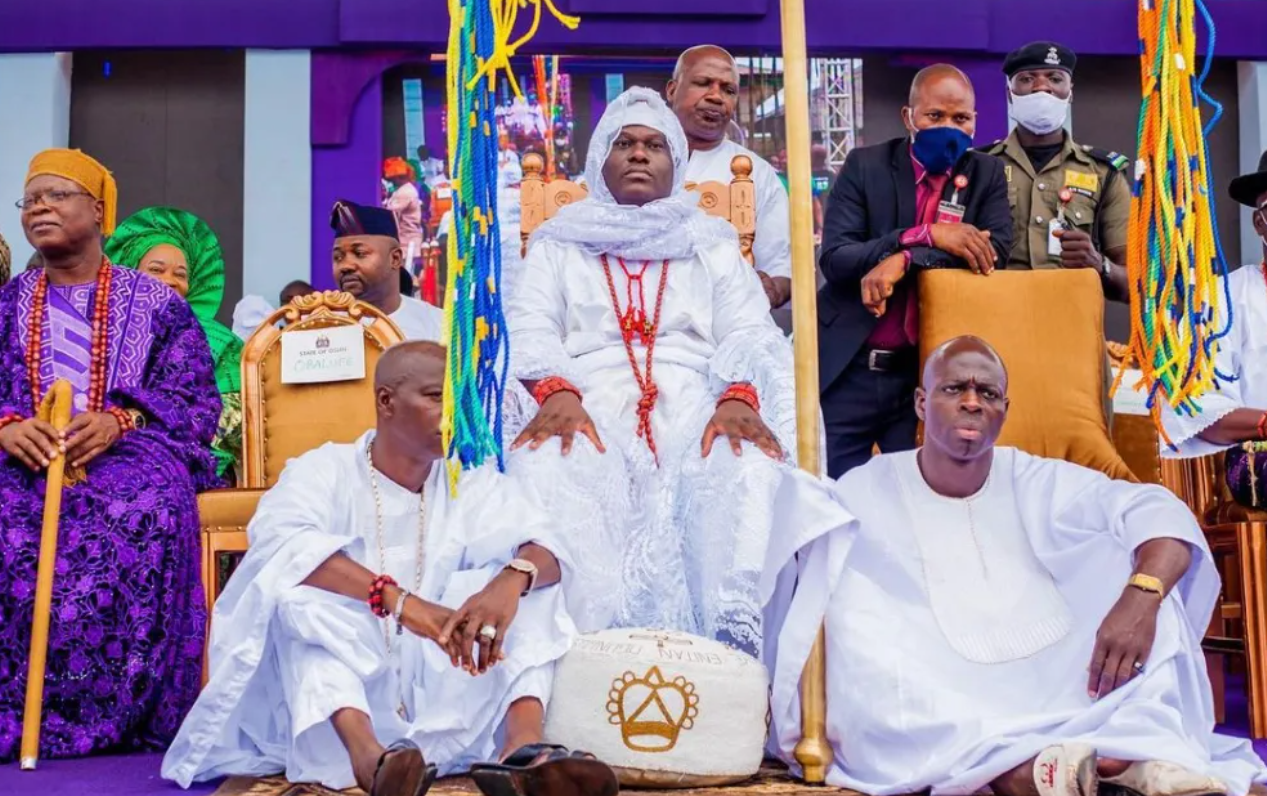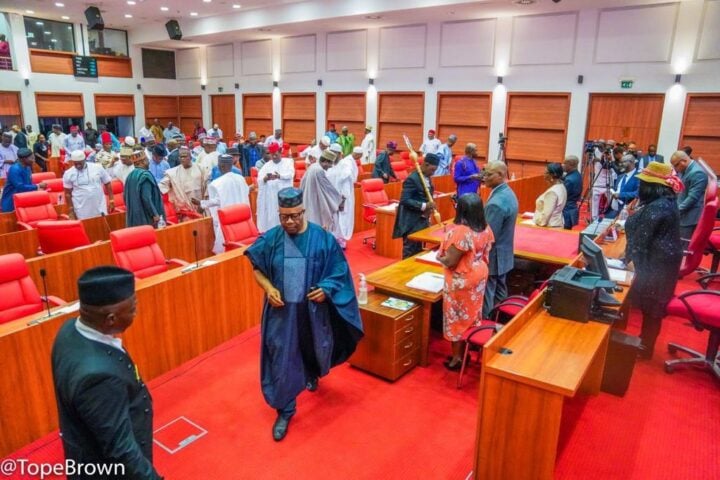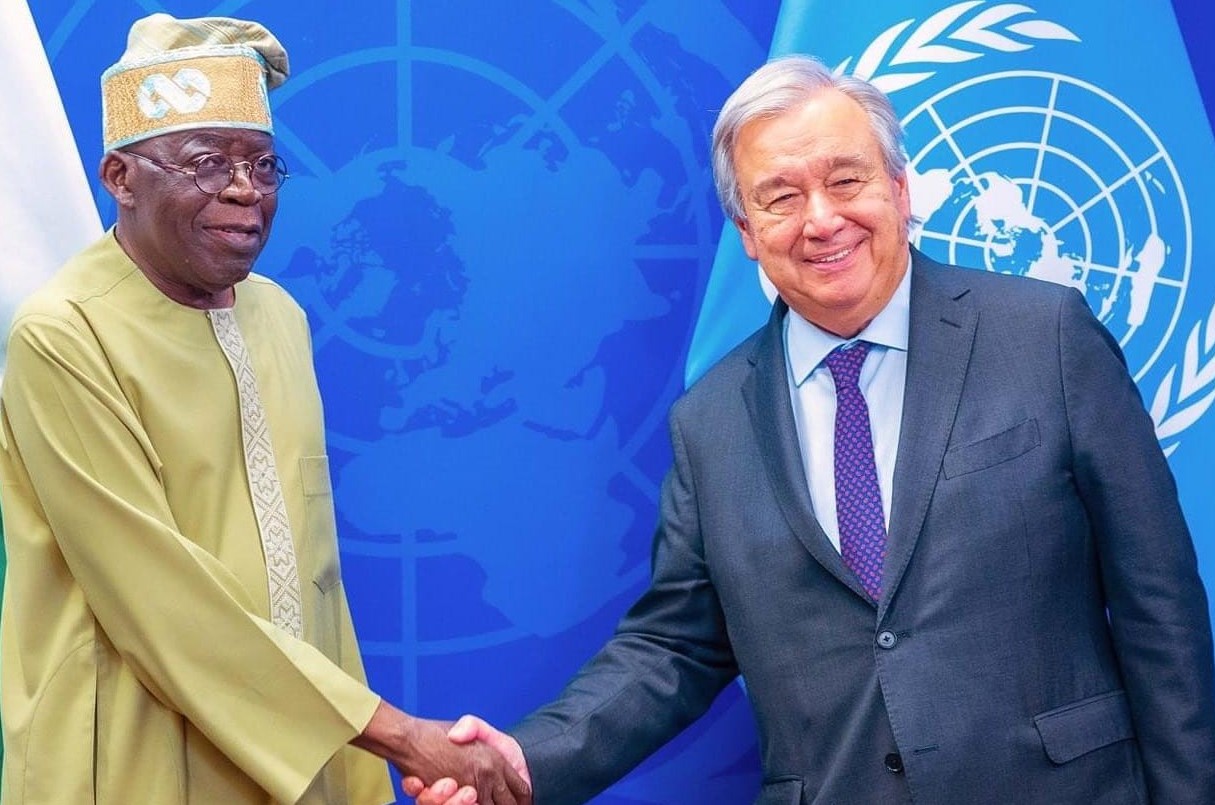A Review of The Historian and Society: Selected Historical Writings of Yusufu Bala Usman, published by Yusufu Bala Usman Institute, 2023.
In commemoration of the 18th anniversary of the death of Yusufu Bala Usman (1945-2005), the Yusufu Bala Usman Institute in Zaria assembled and published a corpus of his papers into a book. The book is a collection of 12 carefully selected and thematically assorted essays from the rich private archives of Bala. These were originally public lectures delivered at conferences, workshops and seminars, but whose tone and texture are consistent with the credentials of Bala as a public intellectual who spoke truth to power. The editors of this book, George Kwanashie and Norma Perchonock, deserve commendation for pulling together these essays into a single monograph with the enthralling title The Historian and Society: Selected Historical Writings of Yusufu Bala Usman. Despite their thematic variation, the chapters are methodically organized in a chronological sequence to show the historical trajectory of Bala’s ideas and the ways in which “they are applied in different contexts and to different subject matter”.
The title of the book, The Historian and Society, is apt as it reflects the radical intellectual stance of Bala as a scholar-activist whose discourse transcends the traditional borders of history, the gulf between the town and gown, or theory and praxis, and the conceptual disjuncture that conventional historians impose between the past and present. As rightly observed by Howard Zinn, “the work that radical historians do in archives and at the typewriter is central to their understanding of advanced capitalism and basic to their commitment to social change. Since the mainstream historian is not going to engage in this task, it is left to the radical scholar to apply himself– with the tools of scholarship, commitment, and integrity– to this task”. This was precisely how Bala understood and approached his task as a historian in constant engagement with right-wing intellectuals and critique of systems of oppression. Armed with the hindsight of a historian, Bala’s scholarly exhortation allowed him to “put knowledge at work in the noble task of improving the human condition”.
The editors the book open with a well-crafted introduction that outlines the biography of Bala and situates his ideas and works within the broader institutional and social contexts of their production. From the onset, the reader is given a general sense of the social responsibility of historians in a country like Nigeria where corruption and prebendal politics prevail. Bala was one of the most ideologically resolute and methodologically consistent intellectuals whose ideas and perspectives derived essentially from the bottom of his heart. Indeed, the tenacity of his ideas, consistency of his analytical framework, and the force of his epistemic pluralism is evident throughout the 221 pages of this book.
Advertisement
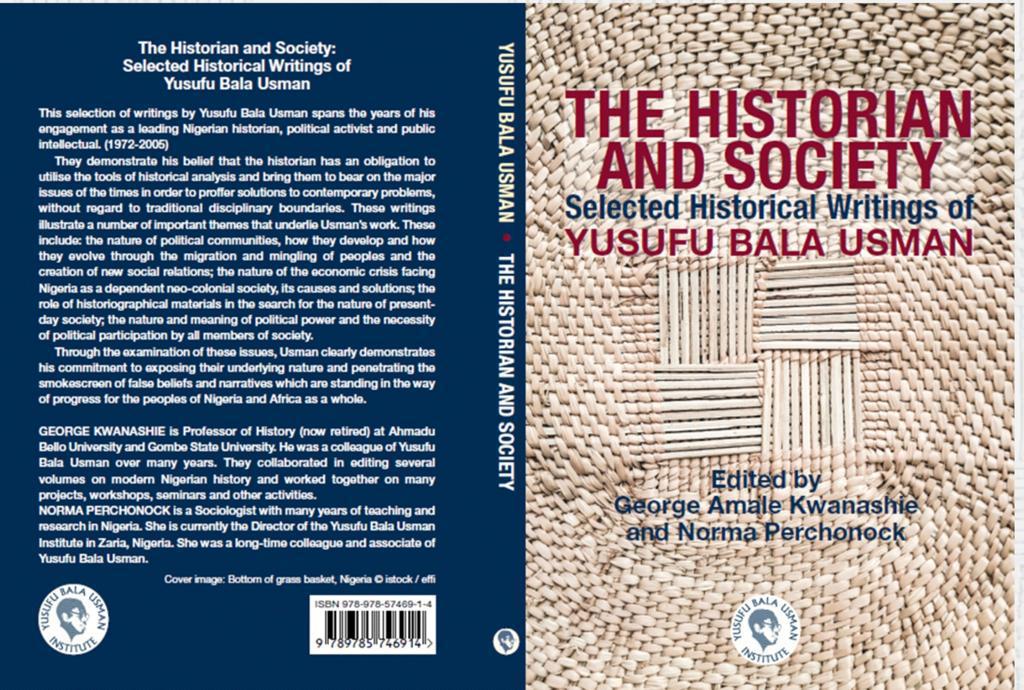
In order to appreciate the significance of the ideas and arguments presented in this book, it is imperative for the reader to recognize, at the onset, the distinctive discursive signature running through the text – that is the clinical deconstruction of colonial historiography and the concomitant racial essentialism and stereotypes with which African history was interpreted as a movement or relations between races or tribal groups in perpetual conflict and warfare. Bala spent most of his career not only decolonizing this racist interpretation of history, but also elaborating the subtle ways in which it was used as instrument of colonial and neocolonial domination. The reader is, therefore, confronted with powerful scholarly expositions that seek to confer agency and power to the lower class as opposed to writing history through the lenses of great men.
The first chapter of the book, “Some Aspects of the External Relations of Katsina before 1804 A.D.”, is one of Bala’s earliest application of this decolonial approach to the historiography of Katsina, The chapter is a critique of the published accounts on Katsina‘s external relations with Kano, Songhay, Gobir, and Kebbi among other states from the 15th century to the 19th century, in which he argues that the widely accepted historiography of Katsina‘s external relations are not supported by evidence in the primary sources. He further argues that this approach consists largely of speculations informed by certain notions regarding the nature of inter-group and inter-state relations in pre-colonial Africa, which focused on warfare as the primary factor that shaped external relations. Instead, Bala emphasizes the significant role of migration, economic and cultural exchanges as the key factors responsible for the formation of cosmopolitan political communities, their identities and their interactions. To be sure, Bala acknowledges the fact that warfare was part of these precolonial relations, but argues that “diplomatic exchanges and armed conflicts between governments took place against a background of more basic and regular forms of external relations”.
Advertisement
Extending the critique of colonially-inspired historiography even further, the second chapter, “The Dimensions of Political Communities: A Note on the Ethnic Interpretation of Nigerian Historical Development”, unpacks a more nuanced version of it in the wider context of Nigeria’s historical experience. In this chapter, he shows how the works of leading scholars, including J.F.A. Ajayi, A.E. Afigbo, and Billy Dudley, were inadvertently clouded by this ethnic historiographical outlook. While noting that the emphasis they give on links and contacts represents a departure from colonial historiography, he is of the view that we must go beyond the simple claim of proving harmonious links between the units of precolonial Nigeria to establishing the essence and nature of the substantive units and the complex historical processes that produced them. “It is not enough”, he states, “to negate colonial and neocolonial historiography and anthropology; we must supersede them”. A closer look at the complex historical processes that produced the polities and social identities of Nigeria, as postulated by Bala, situates us in a good a vantage point to produce effective histories that truly represent our realities beyond colonial stereotypes and misconceptions.
The intellectual agenda of Bala was not limited to decolonizing perceptions of Nigerian and African history. In order to come to grips with the contemporary challenges and realties facing us as a nation, we need to go beyond the critique of colonial legacies. Thus, during the 1980s economic crises of the Structural Adjustment Program (SAP) in Nigeria, he presented a seminal lecture which interrogates the nature of the crises, focusing on the role of middlemen, consultants, contractors. The lecture is reproduced here as chapter three with the same title “Middlemen, Consultants, Contractors and the Solutions to the Current Economic Crisis”. In this chapter, Bala turns into a radical economist to deconstruct the myth and fallacy of the official explanations of the origins of the economic crisis of the time around the notions of “world economic recession” and “oil glut”. Instead, he emphasizes the role of consultants, middlemen and contractors, in causing the crises, especially in terms of their role in the appropriation and expatriation of the huge profits generated in Nigeria to the advanced capitalist countries. This approach to explaining away the real causes of economic underdevelopment and poverty in Nigeria by locating it within broader global economic processes is still used by government officials as a strategy to mask or undermine the role of underlying local factors. However, it is not only the economic crises that Bala dissected in the chapter. He also offers solutions to these economic predicaments, thus: the abolition of contract system and its replacement with direct labor; nationalization of all foreign trade; the establishment of new cooperatives of producers and consumers in agriculture and commerce; as well as the reorganisation of commerce to link directly the organisations of producers with those who process, consume, or somehow utilise, the products, by ensuring that all bank credit, transport and other facilities controlled by governments serve this new system of commerce.
Although Bala was explicitly against the image of a doctrinaire Marxist scholar ascribed to him, as I have shown in my Masters thesis on his historical writings and methodology, this type of analysis reveals his radical-leftist leanings and preference for Marxist approach to interpreting the current realities of Nigeria. In conclusion, Bala cites the texts of some of his previous lectures to stress his position that only “fundamental social and economic changes can deal with the problems of poverty and establishing a democratic system in this country, and that no amount of the usual constitution making will.” The ideas of Bala on the role of middlemen, consultants and contractors in the Nigerian economy ignited the famous Bala versus Yusuf Bangura debate, mirroring the fallout of the division within the radical left in A.B.U. in terms of their approach to understanding and applying Marxist theories in their explanation of economic crises and causes of underdevelopment in Nigeria.
Similarly, the vocabulary of the text and the premises of submissions of chapter four, “The Protracted Struggle for Workers’ and Peoples’ Power”, are framed within the Marxist revolutionary paradigm. The chapter begins with a deconstruction of the concepts of power, people, people’s power and worker’s power and their significance in the history of liberation movements in different parts of world. For Bala, “when we look at the question of power, we should not just examine power purely at the level of the machinery of government and the exercise of these things, because this is one of the very basic problems of the powerful bourgeois democratic culture that imbues so many of us.” Drawing upon examples from countries like Angola, Nicaragua, Cuba, Vietnam among others, Bala concludes that the working class is the only class capable of overthrowing capitalism and building a socialist society.
Advertisement
The focus of chapter five is the nexus between political power and economic recovery within the turbulent years of SAP under the military government of Babangida. Here too, like chapter four where he advances a Marxist interpretation of the notion of people’s power, Bala exposes the official propaganda and make-believe analysis of the impact of government policy on economic recovery in Nigeria. He argues that, contrary to the official claims that SAP had resulted in increase in production and productivity, the reality was that there was no economic recovery at all especially in the critical sectors of the economy – agriculture, trade and manufacturing. He goes on to tease out the relationship between politics and the economy using empirical evidence to show a steady decline in agricultural productivity, trade and purchasing power. Bala concludes by arguing that, in order to have economic recovery, political power should be located in the hands of producers and workers. This chapter represents one of Bala’s open advocacies of socialism as the only viable alternative to Western capitalism.
In chapter six, Bala wears the garb of a historical geographer to explore the ecological dimensions of the historical forces that shaped political transformation in the Central Sudan from C.900 to 1850 A.D. He posits that the processes of political transformation in different parts of the region, from the plains of Kanem, north-east of Lake Chad and on the plains of Kano, to the Kotoko area, the Biu Plateau, from the plains of Daura to the plains of Zazzau and extending to the Bauchi/Jos Plateau, resulted in significant amount of integration of communities in the region. He stresses the importance of migration and ecology in these transformative processes, which created larger polities and bonds of political community that transcended kinship and family ties. It is important to remember that this analytical framework is the hallmark of Bala’s historiography and methodology of repudiating the simplistic view of African as a land inhabited by natural and autochthonous races and ethnic nationalities.
In both chapters seven and eight, the reader is redirected to a different, albeit crucial, theme –the important place of archives, as primary historical source materials, in nation building and the promotion of African unity. The chapters share the common thrust of demystifying, through a critical engagement with archives, the notion of historical tribalism and its various manifestations in historical discourse. They also show how the neglect of archives undermines the capacity of Nigerians and Africans to comprehend the complex origins of their identities and limit their capacity to tackle the problems associated with identity conflicts. For example, the central thesis of chapter seven is that the primary sources of history available in the archives are essential to the task of nation building because they “provide one of the bases for our coming to terms with the complex and dynamic nature of our nations and nationalities, as they were, and as they are changing”. While chapter seven focuses on the role of archives in nation building, chapter eight broadens the scope of the discussion on the social relevance of archives in the promotion of African unity. To be sure, even historians have the habit of treating archives as mere repositories of docile records.
Typical of his radical predilection as a public intellectual, Bala takes the question of the archives to a higher level of analysis to discuss their relationship to pan-Africanist movements beyond their treatment as source material. Drawing examples from Southern and Western Africa, he debunks the notions of absolute identity binaries such as Islam vs Christianity; Zulu vs Xhosa; Hutu vs Tutsi; Dinka vs Arab; Hausa vs Tuareg; Hausa-Fulani vs Yoruba; Ganda vs Ankole; Khran vs Mandinga, and how these labels are used to incite, justify and promote violence in Africa. He argues that this stereotypical classification of identities is part of the wider sinister campaign to block the unity and integration of Africans, which have no basis whatsoever in the primary historical source material. Far from these stereotypes, the primary archival sources, according to Bala, show a movement towards greater unity and integration between 15th and 20th century. The two chapters underscore the relevance of historical consciousness, based on primary sources, in nation building and African unity in the face of neocolonialism.
Advertisement
Chapter nine returns the reader to the question of the formation and nature of the Nigerian economy and polity. Bala begins by critiquing three bogus explanations – incessant military interventions, corruption and greed of the ruling class, and the incongruity of ethnic groups– as the reasons for political instability in Nigeria. Going beyond these explanations, he underscores the importance of the issues that enable the success of military take over. On the issue of greed among the political class, he questions the existence of a monolithic political class positing that it is as a mere “propagandist formulation used nowadays as an anti-democratic device to lump together all political leaders and politicians of different classes, social strata, history, and orientations and connections and ascribe to them the characteristic of the most opportunistic among them, and condemn them all”. On the third explanation of political instability, associated with the artificiality of Nigeria, Bala takes us through a long historical trajectory across three epochs — precolonial state formation, colonial conquest, and the struggle for independence – to demonstrate the root causes of political instability in Nigeria. He concludes by locating the causes of political instability in the repressive economic system which enriches the leaders of the country and pauperizes majority of the people, thereby engendering and widening inequalities and insecurities.
In chapter ten, Bala addresses the issues of public accountability and rule of law against the background of the politics of ethnicity and the clamor for a national conference in 2004, which permeated public discourse under the administration of former President Olusegun Obasanjo. In response to the proponents of national conference, he argues, using his customary approach of negating ethnic agenda, that the “agenda of those demanding the break-up of Nigeria or the institutionalisation of ethnicity in Nigerian politics through a national conference of ethnic nationalities seems to have only one goal, to throw out public accountability and the rule of law and replace it with ethnicist, racist, and religiously bigoted dictatorships, which shall corner public resources with impunity, under the convenient cover of parochial constitutions and laws”. Using evidence of the nature and dynamics of the formation of ethnic nationalities such as the Igbo, Hausa, Kanuri, Yoruba, and the Fulbe, Bala demonstrates how the tribalization of politics obscures public accountability and rule of law, and allows crooked politicians to corner public resources.
Advertisement
In a similar analytical vein, chapter eleven moves to the question of regional integration in West Africa. The chapter opens with a conceptual critique of the term regional integration, extending its meanings and significance beyond the actions of policymakers and policy formulation in form of “legislation, treaties, other policy enactments, official organs and official institutions to bring about the integration”. Instead, Bala proposes a more meaningful and pertinent definition through a closer look at the deeper historical processes of regional integration, drawing upon geological, genetic, and linguistic evidence to demonstrate the mosaic and fluid nature of the peoples of West Africa and the fallacy of any claims to owning resources on the basis of ethnic origins. He further dismisses the notions of globalization and free trade as ideological constructs in the service of imperialism. On the whole, the chapter underpins the importance of history to understanding the meaning and significance of regional integration at governance level in West Africa.
The book winds up with chapter twelve, “Nigeria and the world in the 20th and 21st centuries: the lessons and the options,” which examines the position of Nigeria as part of the worldwide historic struggles for political and social liberation from western imperialism in the 20th century. Here, Bala shows the interconnectedness, interdependence and necessity of relations between Nigeria and the rest of the world. One distinctive feature of this chapter, which was originally presented at a workshop in June 2005 – just about three months to the demise of Bala– is that it is relatively shorter, analytically bumpy and incomplete compared to the remaining chapters of the book.
Advertisement
On the whole, The Historian and Society is an engaging and thought-provoking exploration of some of the most important themes in the history, politics, economy, and society of Nigeria and Africa through the eyes of one of the most perceptive historians in the continent. With the exception of a few typographical errors, the book is not only rich in data and analysis, but also an elegant demonstration of the necessity of historical consciousness in nation building and the progress of the African continent. One of the strengths of the book is the way it showcases the diversity of historical scholarship and the significance of multiple perspectives in constructing a more holistic narrative on the challenges of contemporary Nigeria. It serves as a powerful reminder of the enduring relevance of history in shaping our collective understanding of the world. Bala’s meticulous analysis, clear arguments, and accessible writing style makes The Historian and Society an invaluable resource for both seasoned historians and those interested in understanding the nuances and complexities of Nigerian political economy.
Considering the massive scholarly output and archival collections of Bala Usman, which are currently housed in the Yusufu Bala Usman Institute in Zaria, this book is only a tip of the iceberg. Therefore, the review presented here is just a broad appraisal of the contents of the book as there are many other crucial issues I have not addressed. Finally, it is my hope that the Yusufu Bala Usman Institute will continue with the noble task of making the timeless of ideas of Bala available to the public for the benefit of Nigerians and Africans at large.
Advertisement
Suleiman is of the Department of History, Bayero University, Kano.
Views expressed by contributors are strictly personal and not of TheCable.
Add a comment

